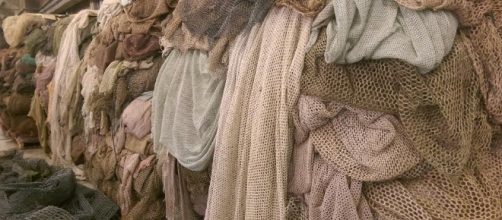Being eco-friendly and sustainable seems to be the new way of life in the 21st century. Everyone knows the term "going green," thus, becoming more conscious about their impact on the environment. Sustainable living is becoming less of a trend and more of an ongoing lifestyle. Eco-fashion is part of the philosophy and trend of sustainability. However, to act sustainably is an easy process, but requires work and dedication, especially in the fashion industry. Green trade fairs, ethical movements, and eco-friendly concepts have become a part of the fashion industry.
Impacting the Runway:
Fast fashion chains are partaking in the eco-friendly movement, even fashion companies are seeking out ethical factories. Many handbag designers are using vegan leather, vegetable dyes, and reusable totes. Leather bags are a luxury standard. Brands such as Stella McCartney and Freedom of Animals are insisting on cruelty-free, eco-friendly materials.
Fur has always played a major role in fashion as an accessory or a garment. Designers have always incorporated fur into their collection, especially once fall and winter arrive. However, with the protest of animal cruelty on the rise, designers are steering clear of the real thing and leaning more towards faux fur.
Fur-Free designers:
- Calvin Klein
- Stella McCartney
- Ralph Lauren
- Vivienne Westwood
- Steve Madden
Fur-Free brands:
- Overstock.com
- NIKE
- American Apparel
- ZARA
- Old Navy
Impacting the workforce:
When purchasing clothes, what do you look for in a garment? Maybe you care about the style, wearability, or the quality of the material. How often do you notice the "Made In" tagline? The fashion industry has researched the "Made In" tagline for some time, considering the impact on the way individuals are shopping. Just because an item might be using sustainable materials, doesn’t mean that the manufacturing of the item was ethical or fair.
Retailers and designers want garments that can be mass produced at a cheap price with minimal quality.
It is rare to see garments "Made In U.S.A" because it is all about quality and price, not location. There are activists that are against purchasing garments, because of the awareness activists are bringing to the problem of sweatshops and unsustainable practices overseas.
Impacting retail:
The push for being eco-friendly is the new mission for retailers. Reusable shopping bags are an easy way to cut down on waste. Americans throw away over 100 billion plastic bags, and only 1-3% percent get recycled. Giving out fewer plastic bags means the stores save money. The fashion world has also joined the movement, with designers selling their own recyclable bags.
Businesses are now thriving, with a mission to make a difference, such as Toms and Warby Parker providing those in need with shoes and eyes glasses.
Online clothing donation company, Fashion Projects, sets out to raise money for consumer chosen charities. Liya Kebede started a clothing and home brand, IemIem, to preserve the Ethiopian art form while creating opportunities in her native country. These brands are taking the fashion industry to the next level, proving that fashion and philanthropy can go hand in hand. ASOS features a “green room” stocked with fashion that is both ethical and eco-conscious. H&M highlights a “Conscious Collection” with exclusive eco-friendly pieces.
Consumers love to follow the latest trends. Being eco-friendly should be more than just a trend, but a way of life. Individuals can strive for a more sustainable life by purchasing products that don't waste resources or pollute unnecessarily. Consider what a product is made of, how and where it is made, how it will be used, and what will happen to it when consumers are finished with it.

